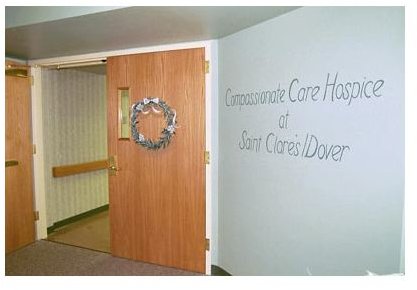Opportunities for Career Advancement for Hospice Administrators
Why Should You Advance Your Career?
As with any career, you may tire of the same responsibilities or feel that your talents would be better utilized in other areas. Career advancement gives you the chance to learn new things, feel more challenged and have a more authoritative position at hospice work. You do not have to leave the hospice industry for career advancement. You can still help those in need while moving up the proverbial ladder. One big reason career advancement may be beneficial is a larger paycheck.
Hospice Opportunities
Within the organization itself, career advancement for hospice administrators typically includes higher supervisor positions and hospice directors. The next level up from hospice administrator is chief hospice executive. The chief hospice executive is responsible for the organization, direction and planning of patient care. The next level is the hospice director. The director is responsible for assigning tasks and managing hospice administrators and chief hospice executives. Other possibilities include work with government health agencies and other health care programs that work with hospice. You would be a liaison between hospice and the other programs. This means planning patient care, providing employees and volunteers for other health care programs and coordinating funding.
When you advance, you would be responsible for more than one hospice location and making sure hospice administrators have what they need to do their job, including funding, volunteers and employees. Depending on the type of hospice administrator you currently are, you can move up as the administrator for an entire region, extending your duties to multiple locations. As a supervisor, you will be in charge of hospice administrators and other hospice positions. The tasks you are responsible for become more political and office like instead of working directly with patients. Common tasks include hiring new employees for your locations, heading meetings for administrators and other head staff.
If you enjoy the hospice administrator position itself, you can still advance by changing locations. While you may currently be the administrator for a small area hospice, you could advance your career by moving in the administrator position for a larger hospice or city.
Image Credits: Wikimedia Commons / Compassionate Care Hospice
Other Opportunities
Outside of hospice, career advancement opportunities are almost endless. With the experience of a hospice administrator, you are ready to take on the administrative tasks for most health care organizations. As with hospice, you can move on into higher positions such as director or supervisor over the entire organization or just certain branches.
You also have the opportunity to join the corporate world. The attention to detail that is required by hospice administrators can be used in most business environments. This also includes working to help bring funding and supplies to hospice and other health care programs from other businesses.
Requirements and Benefits
The education required for career advancement for hospice administrators depends mainly on the position desired. The further you want to advance in the medical area, the higher the degree you must have. Most advanced positions require at least a bachelor’s degree and the correct certification and licensing credentials, which you should already have as a hospice administrator. For a higher salary, a master’s in business administration is recommended. The biggest requirement is experience. After several years as a successful hospice administrator, you have learned what it takes to be successful in advanced positions.
When you decide to advance your hospice career, benefits vary. The two main benefits are higher pay and a better benefits package, such as insurance and vacation. These depend on the position and the location you work in. Small area hospices may not provide the same benefits as those in larger areas. You can talk with a human resources staff member about all possible career advancement opportunities along with any educational requirements before making a final decision.
